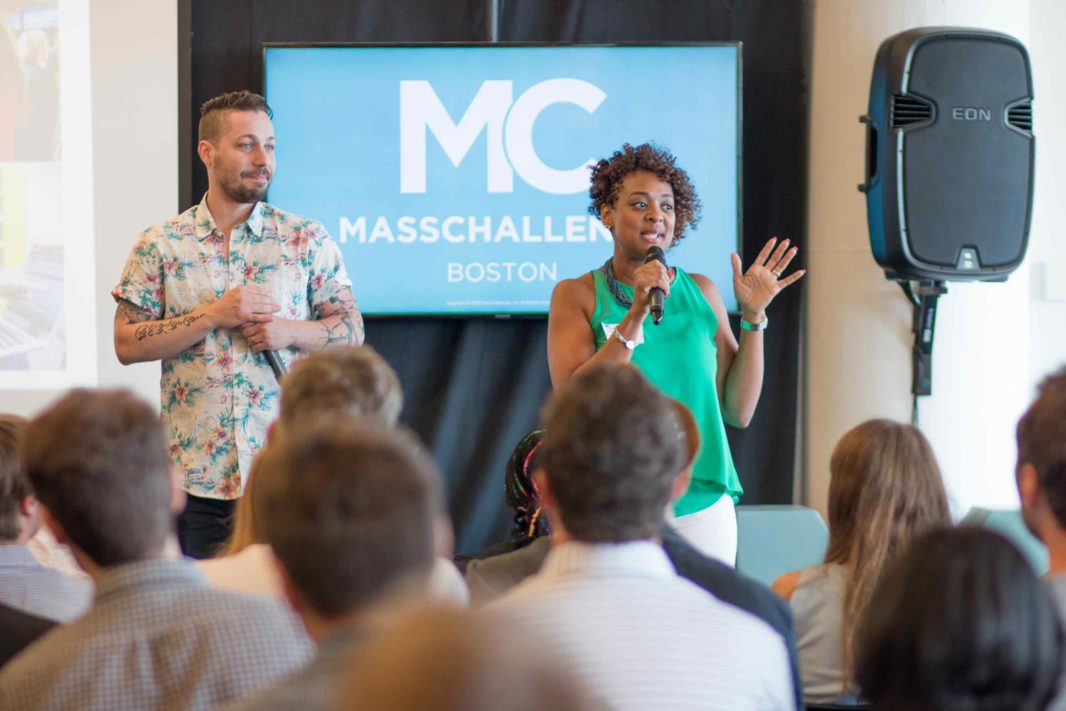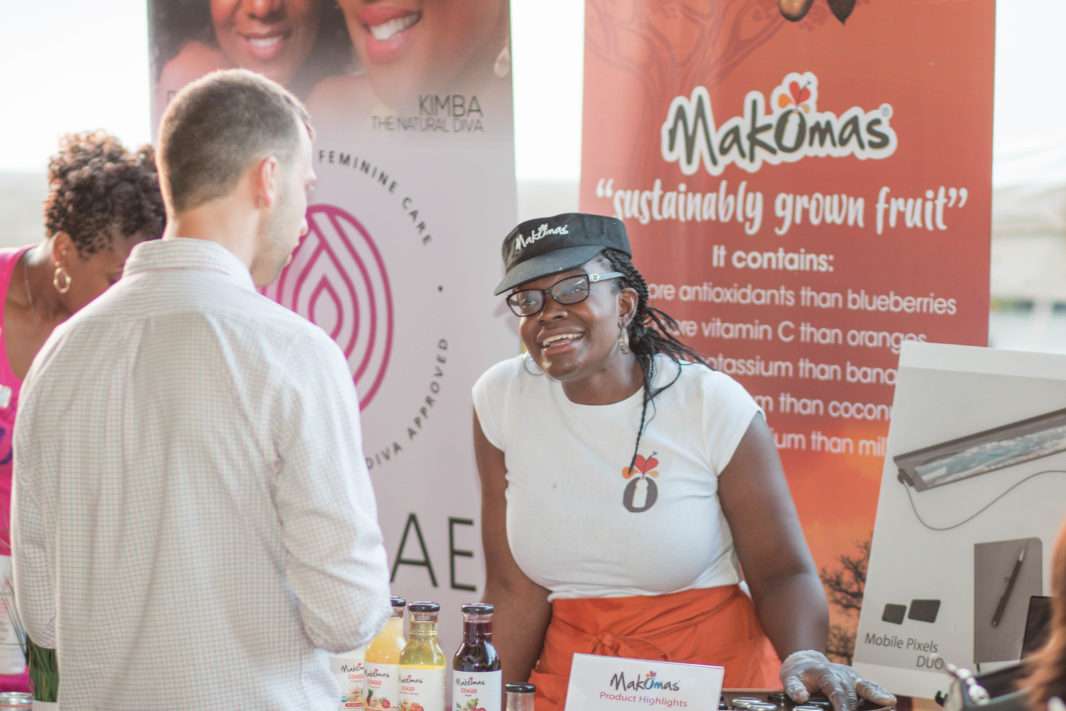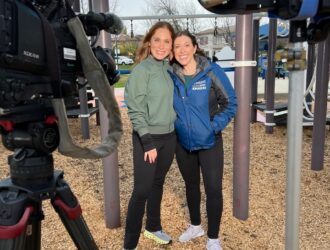
Photo courtesy of MassChallenge Boston
Kimba Williams, founder of start-up Kushae by BK Naturals (all-natural feminine hygiene products) and a MassChallenge 2018 finalist, speaking alongside mentorship manager Artur Sousa
In a sign of the growing presence and visibility of women entrepreneurs, MassChallenge Boston has reached a new milestone in female participation: 51 percent of the start-ups in its 2018 cohort have at least one female founder, up from 48 percent in 2017.
In addition, this year’s roster represents a wide diversity of sectors, with 29 percent in general, retail, and consumer goods; 28 percent in high tech; 27 percent in health care and life sciences; 9 percent in social impact; and 7 percent in clean energy and tech.
“MassChallenge firmly believes that the best ideas can come from anyone, in any industry, from anywhere around the world,” says MassChallenge Boston managing director Kiki Mills Johnston. “This cohort is reflective of that vision and is well on its way to creating widespread impact.”
The early-stage start-ups in this year’s challenge emerged in a competitive process. Applications were reviewed by a set of more than 800 evaluators, including serial entrepreneurs, corporate executives, academicians, and investors, and the 128 participants selected represent the top 8 percent of more than 1,600 applicants hailing from 11 countries and 16 U.S. states.
Founded in 2010 in Boston, the nonprofit MassChallenge business accelerator has grown into an international operation. In locations worldwide, promising start-ups participate in a four-month accelerator program that provides free co-working space, workshops, hands-on support from mentors and experts, and access to a network of corporate partners.

Photo courtesy of MassChallenge Boston
Magbè Savané of Revere-based Makomas, a purveyor of healthy drinks, at the MassChallenge 2018 Startup Showcase
In Boston, those developing physical products can take advantage of MADE@MassChallenge, a 5,000-square-foot research and development lab, and can participate in industry-specific programming tailored for social impact and food and beverage start-ups.
The challenge does not provide upfront funding, but participating start-ups can compete to win a piece of more than $1.5 million in no-equity cash awards at the program’s end.
Challenges and Supports for Women-Led Businesses
A recent report by BCG and MassChallenge revealed that just 2 percent of venture capital funds in 2017 went to female founders. And female founders of color received only .0006 percent of the tech venture funding raised between 2009–2017, according to data from Digital Undivided.
Despite these obstacles, businesses founded and co-founded by women actually perform better over time, generating 10 percent more in cumulative revenue over a five-year period, according to the BCG/MassChallenge report. For every dollar of funding, women-led start-ups generated 78 cents⎯more than double the 31-cent return on male-founded start-ups.
Interviews for the BCG/MassChallenge study indicated that female founders tend to receive more pushback and challenges to their technical expertise during pitches. In addition, women tend to be more realistic in their financial projections and targets⎯and this honesty can translate to a liability in the face of funders “looking for the next moonshot,” as MassChallenge CEO John Harthorne puts it.
Thankfully, a growing number of business support and investor organizations are targeting their advice and services⎯and crucially, their dollars⎯to women-led businesses.
Golden Seeds, founded in 2003, and Pipeline Angels, founded in 2011, are examples of women-led angel investor networks paying special attention to women-led businesses. Women Who Tech runs start-up challenges around the world to help direct more funding to women-led tech start-ups. Portfolia is cultivating women as investors in businesses women care about.
Locally, the city of Boston has offered the Women Entrepreneurs Boston (WE BOS) initiative since 2015 to strengthen and grow the city’s female business ecosystem, and The Capital Network offers a fellowship for female entrepreneurs. At MassChallenge, a Women Founder’s Network helps create programming targeted to the needs of women entrepreneurs.
Will the women entrepreneurs of MassChallenge 2018 walk away with cash awards? Stay tuned⎯winners will be announced at the MassChallenge Boston Awards event on Oct. 17.
We caught up with three of the start-ups from the 2018 MassChallenge cohort to discuss how they got their ideas off the ground, what challenges they’ve faced, and the reality of being a woman in business. Read their stories below.



 3 min read
3 min read




